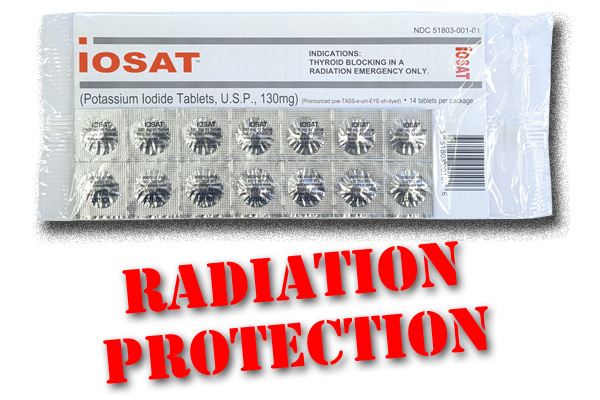IOSAT: The Role of Potassium Iodide in Emergency Preparedness
Posted by James on 03-06-2023
In the event of a nuclear accident or attack, one of the major concerns is exposure to radioactive iodine. Radioactive iodine can be released into the atmosphere during a nuclear incident and can be easily absorbed by the thyroid gland, causing potential long-term health risks such as thyroid cancer. To combat this risk, many governments and health organizations recommend the use of potassium iodide tablets, also known as IOSAT, as a preventative measure.
What is Potassium Iodide?
Potassium iodide is a stable form of iodine that is used to protect the thyroid gland from radioactive iodine. When taken prior to or shortly after exposure, potassium iodide saturates the thyroid gland with non-radioactive iodine, reducing the absorption of radioactive iodine. This can significantly reduce the risk of developing thyroid cancer or other radiation-induced health effects.
IOSAT: A Trusted Brand for Emergency Preparedness
IOSAT is a brand of potassium iodide tablets that has been used for decades in emergency preparedness plans. IOSAT tablets are approved by the US Food and Drug Administration (FDA). The tablets are available without a prescription and can be purchased online at EmergencyKits.com.
How to Use IOSAT
IOSAT tablets should only be taken in the event of a nuclear emergency, and only under the guidance of public health officials or emergency responders. The tablets are most effective when taken within a few hours of exposure to radioactive iodine. The recommended dosage for adults is one 130mg tablet per day, and for children under 18 years old, the dosage is determined by their weight. IOSAT tablets should not be taken by individuals who are allergic to iodine, have certain thyroid conditions, or are pregnant or breastfeeding.
Other Considerations for Emergency Preparedness
While IOSAT tablets can provide protection against the harmful effects of radioactive iodine, they are not a substitute for other emergency preparedness measures. It is important to have a plan in place for evacuation or sheltering in place, as well as access to emergency supplies such as food, water, and medical supplies. It is also important to stay informed about potential risks and to follow the guidance of emergency responders and public health officials.
Conclusion
Potassium iodide tablets such as IOSAT can be an important tool in emergency preparedness plans for nuclear incidents. By saturating the thyroid gland with non-radioactive iodine, these tablets can reduce the risk of long-term health effects from exposure to radioactive iodine. However, they should only be taken under the guidance of public health officials or emergency responders, and should not be relied upon as the sole means of protection. A comprehensive emergency preparedness plan that includes evacuation and sheltering in place, as well as access to emergency supplies and up-to-date information, is essential for protecting yourself and your family in the event of a nuclear incident.

